Facelift in Tunisia
Search and Compare the Best Clinics and Doctors at the Lowest Prices for Facelift in Tunisia
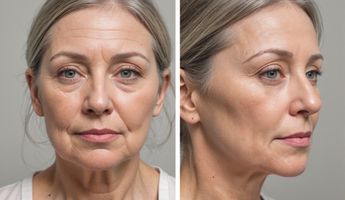
Find the best clinics for Facelift in Tunisia
With Medijump you can browse 8 facilities offering Facelift procedures in Tunisia. The cheapest price available is $2,029 in Monastir. And for the cheapest price globally, prices start from in .
Facelift in Monastir
Price: $ 2,029
Facelift in Tunis
Price: $ 2,456
From 4 verified reviews
Samir Derradji, 18 March 2018
Hello I follow sick dalger Algeria I ask you a preforma for an opairation on the colon .Thank you
From 11 verified reviews
Craig Mills, 30 July 2019
Excellent private health care looked after my soon after he drowned in sahara beach hotel this month would definatly recommend being cared for there staff were amazing
From 37 verified reviews
Saoussen Saidani, 13 June 2020
My 12 year old daughter Lina has had surgery Pancreas tumorHeavy Operation which went very wellI thank all the staff of the Pasteur clinic for their hospitality and their hygiene ...I thank the doctors who attended the operation and in particular the surgeonAYADI Sofiene who accompanied us from the start for his professionalism as well as DR Walid Miraoui. The discovery of this tumor is done in a very short time a week to manage allThe support of Surgeon Ayadi Sofiene was really perfect as a parent we were reassured and above all in confidence.And especially I thank them for the moral support of My Daughter Lina who kept the smile until the end and who It is found in Total confidenceThank you so much for saving our childMr er Mrs Saidani
From 11 verified reviews
Toumi Mondher, 02 April 2019
The Department of Extraction and Billing at the Center of Imaging and Radiology, two patients, treated me with a reputation as a Tunisian clinic, and I bear the responsibility to speak this
From 9 verified reviews
Ibtyhel Ben bassine, 19 April 2019
I slept my little girl on Thursday, March 8, 2018, was at Top, my gygy, the nurses .... they put me in a calm and clean environment with a service of excellence .. thank you prts and especially pr Dr. hichem
Clinique Taoufik, can be found in Boulevard Mohamed Bouazizi, Tunis, Tunisia and offers its patients Facelift procedures as well as 225 other procedures, across 24 different procedure categories. At present, there is no pricing information for Facelift procedures at Clinique Taoufik. The pricing information is quite specialised, so it's only available on request, and the average price is around ฿87,090. Many medical professionals work at the Clinic, with 10 in total, and Clinique Taoufik is accredited by just one known accreditations institute, ISO 9001:2008
Clinic Apollon, can be found in Boulevard Mohamed Bouazizi, Tunis, Tunisia and offers its patients Facelift procedures as well as 90 other procedures, across 1 different procedure categories. At present, there is no pricing information for Facelift procedures at Clinic Apollon. The pricing information is quite specialised, so it's only available on request, and the average price is around $2,420. A small team of medical professionals undertake all procedures at the Clinic, with 2 in total, and Clinic Apollon is not accredited by any recognised accreditations institutions.
Aesthetica Tour, can be found in Boulevard Mohamed Bouazizi, Tunis, Tunisia and offers its patients Facelift procedures as well as 42 other procedures, across 9 different procedure categories. At present, there is no pricing information for Facelift procedures at Aesthetica Tour. The pricing information is quite specialised, so it's only available on request, and the average price is around $2,420. The lead specialist at the Hospital will be carrying out all the treatments, and Aesthetica Tour is not accredited by any recognised accreditations institutions.
- Home
- Tunisia
Compare Before & After Photos of _procedure_photos.phpFacelift

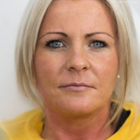
Front view
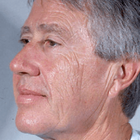
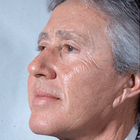
Half-side view


Full-side view
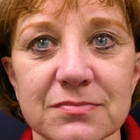
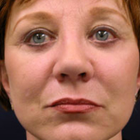
Front view
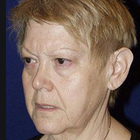
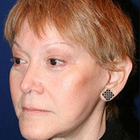
Half-side view
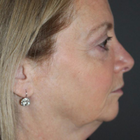
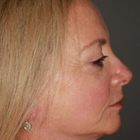
Full-side view
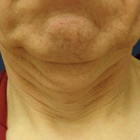
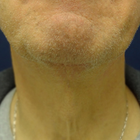
Front view
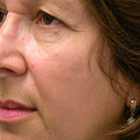
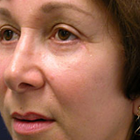
Half-side view
WHY US?
At Medijump, we're making medical easy. You can search, compare, discuss, and book your medical all in one place. We open the door to the best medical providers worldwide, saving you time and energy along the way, and it's all for FREE, no hidden fees, and no price markups guaranteed. So what are you waiting for?

Free

Best Price

Widest Selection

Risk-Free
What you need to know about Facelift in Tunisia

A facelift, also referred to as rhytidectomy, is a cosmetic surgery that aims to restore a more youthful facial appearance. It can reduce sagging or folds of skin on the cheeks, jawline, and other areas in the face that changes shape due to aging.
As we age, our skin loses their elasticity and become looser. Fat deposits also decrease in some areas and increase in others. This leads to sagging and wrinkles. With a facelift, these problems can be addressed by lifting and tightening the sagging facial tissue. The procedure may involve removing excess skin that’s causing “jowls”, smoothing out wrinkles or folds, and tightening facial tissue. It can also have a rejuvenating effect on the areas below the eyes and the deep lines from the corners of the mouth to the sides of the nose.
It is important to bear in mind that a facelift is not a treatment for creases around the nose, superficial wrinkles, and irregularities in skin color. It also cannot stop the aging process or change your fundamental appearance.
Although there are newer and less invasive facial rejuvenation procedure, a surgical facelift is still one of the most popular today. This is because the procedure offers the most dramatic results.
What is the cost of Facelift in Tunisia?
Many people take into account the cost of a Facelift in Tunisia very carefully because it differs greatly from one area or clinic to another. But the typical price normally includes the surgeon's fee, the facility fee, the cost of anaesthesia, and any required pre-operative diagnostics. The complexity of your case, the surgeon's experience, and his or her reputation all have a role in the procedure's ultimate cost, which is important to keep in mind. Remember that these expenses are an investment in your self-worth and personal fulfilment and could have a big impact on your quality of life.
What does a Facelift Procedure Involve?
In terms of aesthetics, your surgeon will recommend the best choice for your own comfort. You may
There are three types of incision used in a facelift, which depends on the degree of change you would like to see and the technique your surgeon will use.
- A traditional facelift incision starts at your temples in the hairline, continues around the ear and ends in behind your neck in the lower scalp. An incision may also be made under your chin to improve the look of the neck.
- A limited incision is shorter than traditional facelift incision. It starts in your hairline just above the ear, continues around the ear but does not extend to the lower scalp.
- Neck lift incisions begin in front of the earlobe, continues around your ear into the lower scalp. This type of incision addresses the sagging jowls, fat accumulation under the chin, and loose neck skin.
In general, your surgeon elevates the skin and tighten the underlying tissues and muscles after making an incision. Fat in your face and neck may be removed, sculpted, or redistributed. Then, the incision is stitched.
How Long Should I Stay in Tunisia for a Facelift Procedure?
You should be able to leave the hospital on the same day of the surgery if local anesthetic is used. However, if the surgery is done under general anesthetic, you may need to stay in the hospital for about 1 to 2 days. You should plan to stay in Tunisia for around 7 to 10 days following the surgery because you will have to attend follow-up checkups. During the checkups, your surgeon will monitor your healing and remove your stitches.
What's the Recovery Time for Facelift Procedures in Tunisia?
While recovering, it is beneficial to prop your head up and refrain from any heavy-duty tasks. Healthy eating habits and effective stress control can remarkably assist in your recuperation journey. A complete healing span could last for a few months, during which the puffiness slowly eases off and the cut marks become less noticeable. Diligently adhering to the post-surgery guidelines from your doctor and consistently showing up for all scheduled check-ups can contribute to a swift, seamless recovery.
Expect to experience bruising, swelling, and some discomfort for the first 3 to 5 days. You may be able to return to work and some light activities within 7 to 14 days, but avoid any vigorous activities for about 5 to 6 weeks. It may take 2 to 3 months until your face feels normal in terms of texture and sensibility.
What sort of Aftercare is Required for Facelift Procedures in Tunisia?
Your surgeon will provide detailed post-operative instruction. To avoid any complications and maximize the result, you need to follow all instructions closely. You may have to avoid any clothing that is pulled over the head, such as t-shirts and sweaters. You should also avoid using makeup and direct sun exposure for about three weeks, as well as coloring, bleaching, or perming your hair for six weeks following the surgery.
To maintain the results of your facelift, you need to avoid smoking, use sunblock, moisturize your face daily, maintain weight stability, follow a healthy diet plan, exercise regularly, and live a generally healthy lifestyle.
What's the Success Rate of Facelift Procedures in Tunisia?
Approximately 80% to 90% of people who had a facelift is reported to achieve a positive result after their procedure. However, although great results are expected after a facelift, there can be no guarantee. In some cases, you may need more than one surgery to achieve your desired result. To make sure your surgery is successful; you need to ensure your surgeon is skilled and experienced. You also have to follow your surgeon’s instructions, from the preparation to the aftercare.
Note that the results of a facelift are not permanent because no cosmetic procedure can stop aging. Your facial skin may begin to droop again as you age. The average facelift lasts between 7 and 10 years before you have aged enough to need additional work.
Are there Alternatives to Facelift Procedures in Tunisia?
If you do not want to (or cannot) undergo a facelift, you can opt for an alternative.
- Mini-facelift - a less invasive procedure that also aims to lift the wrinkles and sagging skin in the lower part of the face. Because it involves a smaller, s-shaped incision around the ear, it cannot address neck sagging or excess skin.
- Botox - it reduces the appearance of wrinkles and usually takes about 24 to 72 hours to take effect. A botox injection uses botulinum toxin to temporarily paralyze muscle activity.
- Fillers - unlike botox, fillers fill the line, crease, or the general facial area with different kinds of substances. These fillers can be used as “volumizers”, plumping and lifting your cheeks, jawline, and temple.
- Laser Skin Resurfacing - this works to give you a younger-looking facial skin by removing some skin layer by layer. Patients can get rid of scars, wrinkles, acne marks, and blotches.
- Ultherapy - this uses ultrasound to heat targeted tissue under the surface of your skin. The heat will then trigger the natural production of collagen. This procedure can be repeated 6 to 12 months because collagen usually takes very long to develop.
- LED - light-emitting diode therapy uses a variety of different colored lights to target various parts of your face. This is a pain-free procedure that treats acne, fine lines, wrinkles, pigmentations, acne scars, and rosacea.
What Should You Expect Before and After the Procedure
Before having the Facelift, you will meet with your surgeon to discuss your goals and what you expect to accomplish. Your medical history will be carefully reviewed at this meeting to ensure that the procedure is safe for you. Before the surgery, you might also need to get some routine health screenings to make sure you're in good health overall.
Expect to have bandages applied to your surgical wounds following the Facelift, and it's possible that a drain may be installed to collect extra fluid. Swelling and bruising are normal postoperative side effects, but these should progressively go away over a few weeks.
What are the Potential Risks of Facelift?
As with other surgical procedures, a facelift can carry some possible risks and complications, which may include:
- Hematoma
- Scarring and skin loss
- Hair loss
- Nerve injury (temporary or permanent changes in facial sensation or difficulties in moving facial muscles)
Some of these risks can be managed with appropriate care and medication. However, you need to be aware of the long term and permanent complications. While they are rare, they may alter your appearance significantly.
Whilst the information presented here has been accurately sourced and verified by a medical professional for its accuracy, it is still advised to consult with your doctor before pursuing a medical treatment at one of the listed medical providers
No Time?
Tell us what you're looking for and we'll reachout to the top clinics all at once
Enquire Now

Popular Procedures in Tunisia
Prices Start From $108

Prices Start From $1,945

Prices Start From $672

Prices Start From $275

Prices Start From $108

Recommended Medical Centers in Tunisia for Facelift

- Interpreter services
- Translation service
- Religious facilities
- Medical records transfer
- Medical travel insurance
- Health insurance coordination
- TV in the room
- Safe in the room
- Phone in the room
- Private rooms for patients available

- Interpreter services
- Translation service
- Religious facilities
- Medical records transfer
- Medical travel insurance
- Health insurance coordination
- TV in the room
- Safe in the room
- Phone in the room
- Private rooms for patients available

- Interpreter services
- Translation service
- Religious facilities
- Medical records transfer
- Medical travel insurance
- Health insurance coordination
- TV in the room
- Safe in the room
- Phone in the room
- Private rooms for patients available

- Interpreter services
- Translation service
- Religious facilities
- Medical records transfer
- Medical travel insurance
- Health insurance coordination
- TV in the room
- Safe in the room
- Phone in the room
- Private rooms for patients available

- Interpreter services
- Translation service
- Religious facilities
- Medical records transfer
- Medical travel insurance
- Health insurance coordination
- TV in the room
- Safe in the room
- Phone in the room
- Private rooms for patients available

- Interpreter services
- Translation service
- Religious facilities
- Medical records transfer
- Medical travel insurance
- Health insurance coordination
- TV in the room
- Safe in the room
- Phone in the room
- Private rooms for patients available

- Interpreter services
- Translation service
- Religious facilities
- Medical records transfer
- Medical travel insurance
- Health insurance coordination
- TV in the room
- Safe in the room
- Phone in the room
- Private rooms for patients available

- Interpreter services
- Translation service
- Religious facilities
- Medical records transfer
- Medical travel insurance
- Health insurance coordination
- TV in the room
- Safe in the room
- Phone in the room
- Private rooms for patients available

- Interpreter services
- Translation service
- Religious facilities
- Medical records transfer
- Medical travel insurance
- Health insurance coordination
- TV in the room
- Safe in the room
- Phone in the room
- Private rooms for patients available

- Interpreter services
- Translation service
- Religious facilities
- Medical records transfer
- Medical travel insurance
- Health insurance coordination
- TV in the room
- Safe in the room
- Phone in the room
- Private rooms for patients available
Facelift in and around Tunisia
About Tunisia
Tunisia is one of the few countries which can cater to everyone and it manages to combine climate, golden beaches, history, and shopping for an “all-around” experience. It has a high standard of healthcare and an excellent reputation for cosmetic surgery. Cosmetic and plastic surgeons are regulated by the Tunisian Ministry of Health and the private clinics have state-of-the-art equipment and English-speaking staff. Tunisia welcomes an ever-increasing number of medical tourists each year, many of whom travel for Facelift procedures. Medical Tourists travel from all across the globe, particularly from Europe and neighboring African countries with an inferior healthcare system. Popular medical tourism destinations outside of the capital, Tunis, include Sousse and Mahdia
Popular Parts of Tunisia
- Tunis, the country’s capital, is overflowing with a history that dates from the 4th Century BC. The city is divided into two parts, the old city known as the medina and the new city (or Ville nouvelle in French). Many tourists visit Tunis to see the Archaeological Site of Carthage which is also a UNESCO World Heritage Site. The beautiful Islamic architecture in medina also attracts many tourists to the city.
- Tozeur is known as a home to an enchanting desert oasis, which was a place to rest and refuel for caravans crossing the Sahara. Another main attraction in the city is the medina, where tourists can find lines of beautiful brick-patterned traditional dessert houses. Chott el Djerid, Sahara’s largest salt pan, is a popular day-trip destination.
- Sousse is located on the coast of the Mediterranean Sea. It offers good beaches with a clear blue sea. The city has been fought over by the Romans, Arabs, and Europeans, giving it a colorful history and culture. Sousse Archeological Museum is one of the most visited sites in the country; it has the second largest collection of mosaics in the world.
- Hammamet is the country’s original tourism resort. The city has beautiful gardens filled with oranges, lemons, and other citrus plants. It also has wonderful sandy beaches with crystal clear water. Just like any other city in Tunisia, this city is also brimming with interesting histories. Sites such as The Gafsa Museum and Bardo Museum will give insights about the Islamic faith and culture.
- Douz, also known as “the gateway to the Sahara.” Tourists who want to experience the Sahara Desert come to this city. Take a camel trip or a 4-wheel-drive into the Sahara or see the Museum of the Sahara that has an interesting collection portraying traditional Saharan life.
Weather and Climate in Tunisia
The North of Tunisia has a subtropical Mediterranean climate with mild rainy winters and hot summers. The South and inland areas have a tropical desert climate.
The weather is relatively comfortable throughout the year. Summer starts in June and lasts until August. The average temperature is between 28 °C to 32 °C with July and August being the hottest months. The heat is not as bad on the coast because of the seaside breeze. Be aware that July to September is the jellyfish season.
The heat decreases in autumn and the weather is somewhat more comfortable. There are occasional rain showers in September. The temperature in October can be like summer during day time, but cold at night. October has more rain than September. The season lasts for three months from September to November with an average temperature of around 19 °C to 29 °C.
The weather in winter can be uncertain. The average temperature is between 16 °C and 18 °C, but it can drop to 7 °C at night and below 0 °C in highlands and deserts and a clear sky is rare during this season.
Spring comes in March and the temperature can rise to 20 °C. Mornings and nights are cold; there is still a high probability of rains and thunderstorms at the end of this season.
Getting Around in Tunisia
Tunisia has several international airports. The main airport is Tunic-Carthage International Airport. It has international connections with major European countries and the Middle East. The airport is the hub for Tunisair, Tunisair Express, and Nouvelair. Other airports that have international flights are Enfidha-Hammamet, Monastir Habib Bourguiba, Djerba-Zarzis, and Tabarka-Aïn Draham.
Taxis and buses are available to get to the city center from Tunis Airport. The SNT bus line departs every 30 minutes from the airport, the ticket costs less than 1 TND. There is also the TUT bus which departs every 15 minutes and is more luxurious and expensive.
Airport taxis are available at the airport taxi stand and are usually metered. Always make sure that the driver turns the meter on before riding the taxis. A journey to the city should cost around 5 TND. An extra cost will be added if you have baggage.
Getting around in Tunisia can be done by several transportation modes. Tunisair Express provides domestic flights between Tunis, Tozeur, Djerba, and Gabes. The Train is also available and the national train company in the country is SNCFT that runs modern and comfortable trains from Tunis to Sousse, Sfax, and Monastir. There are three classes of service that tourists can choose. The fare from Tunis to Sousse is between 6 to 10 TND. The long-distance bus is an economical option to travel between big cities such as Tunis, Hammamet, and Nabeul. The buses usually depart every 30 minutes.
Tourist Visas in Tunisia
Citizens of 97 countries (including Australia, China Singapore, the United States, and Russia) can visit and stay in Tunisia for up to 90 days without a visa. Other nationalities are advised to check with their local Tunisia embassy. Tunisia provides an online visa application for nationalities that needs a visa to enter. The eVisa will simplify the process of obtaining travel authorization to enter the country.
Additional Information
-
Local Currency: the local currency is the Tunisian dinar (TND). 1 USD converts to 2.61 TND.
-
Money & Payments: ATMs can be found in most cities and in all tourist areas. Many ATMs have withdrawal limits of 400 TND. Credit cards (MasterCard and Visa) are accepted in major cities and tourist areas. They can be used for shops, car hire, or top-end accommodation. Always make sure to carry cash if you want to travel outside major cities. Tipping is not necessary but will be appreciated.
-
Local Language: Arabic is the official language of Tunisia. French is very common due to the country’s former status as a French protectorate. English is still very limited except in the tourist areas and expensive hotels.
-
Local Culture and Religion: Islam is the major religion with 98% of the population identified as Muslim. There is a small group of Christian and Jews. Since most of the population is Muslim, always remember that the dress code is important in Tunisia.
-
Public Holidays: Tunisia celebrates major Islam holidays. The country hosts several annual festivals throughout the year such as The International Festival of the Sahara, Yasmine Hammamet Festival, and the International Festival of Carthage.
Popular Searches
- Plastic Surgery in Thailand
- Dental Implants in Thailand
- Hair Transplant in Thailand
- Breast Augmentation Thailand
- Gastric Sleeve in Thailand
- Gender Reassignment Surgery in Thailand
- Laser Hair Removal in Bangkok
- Botox in Bangkok
- Dermatology in Bangkok
- Breast Augmentation in Bangkok
- Coolsculpting in Bangkok
- Veneers in Turkey
- Hair Transplant in Turkey
- Rhinoplasty in Turkey
- Stem Cell Therapy in Mexico
- Rhinoplasty in Mexico
- Liposuction in Mexico
- Coolsculpting in Tijuana
- Rhinoplasty in Korea
- Scar Removal in Korea
- Gastric Sleeve in Turkey
- Bone Marrow Transplant in India
- Invisalign in Malaysia
- Plastic Surgery in the Dominican Republic
- Tummy Tuck in the Dominican Republic
- Plastic and Cosmetic Surgery in Poland
- Rhinoplasty in Poland
- Hair Implant in Poland
- Dental Implants in Poland
- IVF in Turkey







